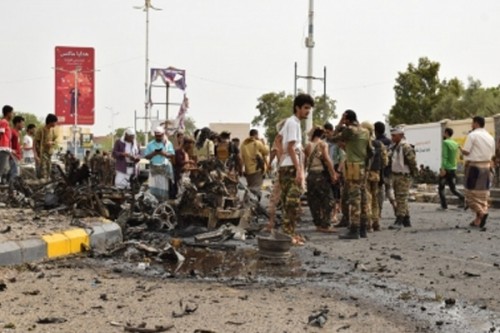Yemen government warns of return to full-scale conflict as Houthis escalate attacks

Aden, March 25 (IANS) Yemen's internationally-recognised government warned of a possible return to all-out military conflict in the war-ravaged Arab nation following an escalation of attacks by the Houthi militia in the oil-rich province of Marib.
Information Minister Moammar al-Eryani said in a statement late Friday that scores of Houthi rebels launched a large offensive against the government-controlled areas in the province's Harib district, forcing hundreds of local residents to flee, reports Xinhua news agency.
Despite recent diplomatic efforts towards peace, heavy clashes between the Yemeni army and the Houthi militia were reignited in Marib during the past three days, with Tuesday's overnight fighting in Harib leaving 19 people from both sides dead, and several others injured.
Eryani called on the UN and the international community to condemn the Houthis' actions and apply pressure to push them towards peaceful resolutions, preventing a return to full-scale war.
He said that the Houthi rebels' offensive against Marib has caused significant destruction, with villages in Harib coming under missile and artillery fire.
The latest assault confirmed the Houthi group's "persistent use of political and military escalation tactics, aiming to take advantage of the ongoing state of neither war nor peace that has persisted since the truce's expiration in order to secure strategic gains on the battlefield", the Minister said in the statement.
The resurgence of fighting also threatens the fragile peace process bolstered by the recent agreement between the warring Yemeni sides to exchange hundreds of war prisoners under the auspices of the UN.
Yemen has been embroiled in a devastating civil war since 2014, with the Houthis fighting against the internationally-recognised government and its allies, which include a Saudi Arabia-led coalition.
The UN has been pushing for a ceasefire and peace talks in Yemen, which has been described as the world's worst humanitarian crisis.
The conflict brought the Arab world's poorest country to the brink of collapse causing famine and widespread suffering as well as disrupting the country's food supply chain, leaving millions of people without access to adequate nutrition.

|

|

